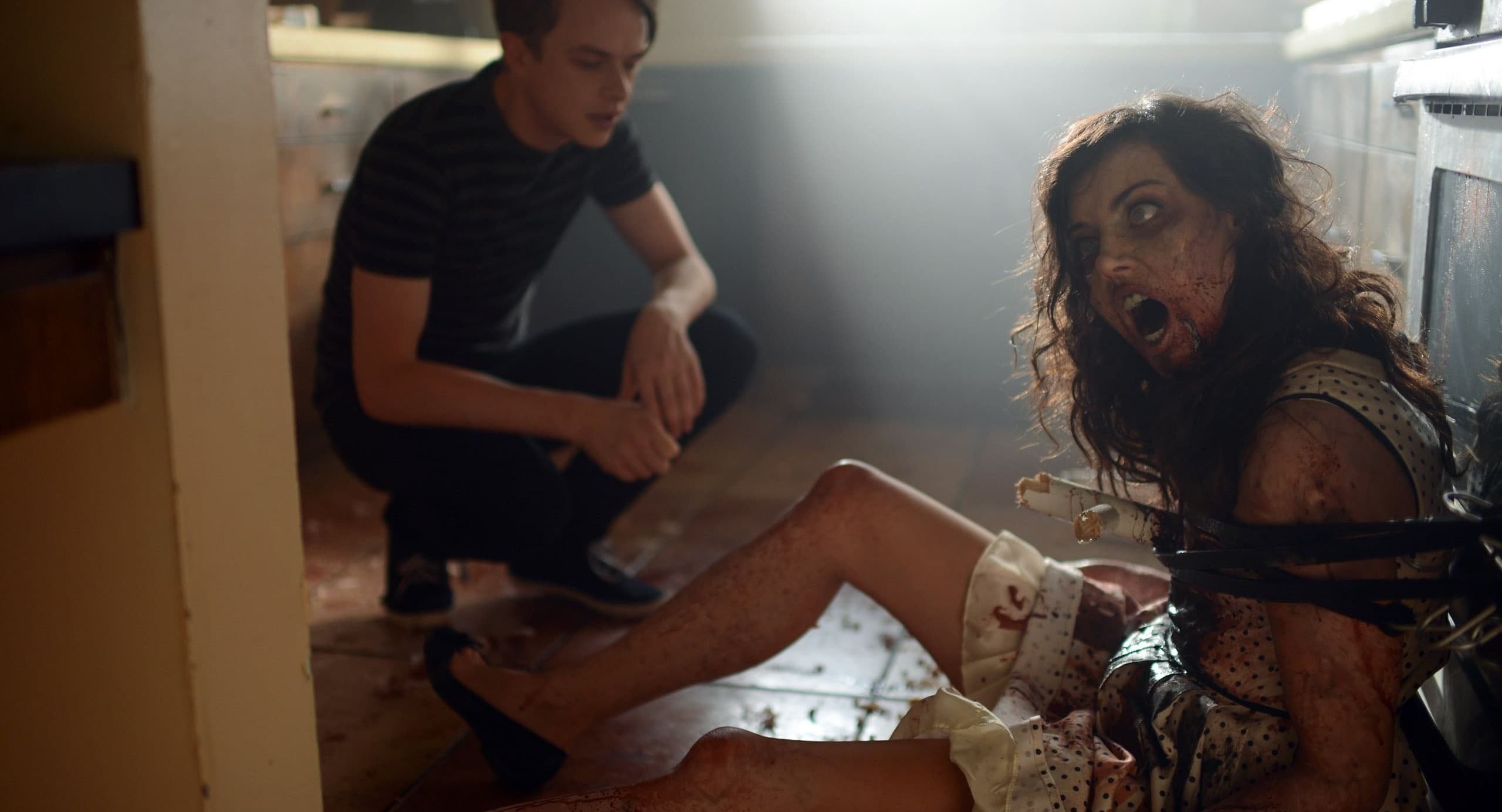Zach is devastated by the unexpected death of his girlfriend, Beth. When she mysteriously returns, he gets a second chance at love. Soon his whole world turns upside down.
Life After Beth, directed by Jeff Baena, attempts to blend the zombie and romantic comedy genres, offering a unique take on love, loss, and the undead. While the film’s premise is intriguing, it falls short of fully capitalizing on its potential, resulting in a mixed bag of engaging moments and missed opportunities.
The film centers around Zach (Dane DeHaan), a young man who is mourning the unexpected death of his girlfriend, Beth (Aubrey Plaza). However, Zach’s grief takes an unexpected turn when he discovers that Beth has miraculously returned from the dead. At first, her return seems like a blessing, but as she begins to display increasingly odd behavior and a growing appetite for flesh, Zach realizes that the circumstances of her return are far from ordinary.
The concept of blending the zombie genre with a romantic comedy is undoubtedly intriguing, offering potential for exploring the complexities of relationships and grief in a fresh way. Unfortunately, Life After Beth fails to fully develop this potential, often resorting to predictable and formulaic moments that do little to elevate the plot beyond its initial premise.
The film boasts a talented cast, with Dane DeHaan as the grieving Zach and Aubrey Plaza as the enigmatic resurrected Beth. DeHaan’s portrayal of Zach strikes a balance between vulnerability and frustration, effectively conveying the conflicting emotions of his character. Plaza brings her signature deadpan humor to the role of Beth, successfully capturing the transition from a charming girlfriend to a zombie with an insatiable appetite. However, despite the strong performances, the characters often feel one-dimensional and lack the depth needed to fully engage the audience.
Supporting characters, including Zach’s parents (played by John C. Reilly and Molly Shannon) and Beth’s parents (Cheryl Hines and Paul Reiser), add moments of comic relief but are underutilized, reducing their impact on the overall narrative. The film could have benefited from more exploration of their reactions to Beth’s return and how it affects their relationships with each other and Zach.
Jeff Baena’s direction attempts to balance horror elements with comedic moments, and while there are instances where this balance works, the overall tone of the film feels inconsistent. The film teeters between dark humor and somber drama, making it difficult for the audience to fully invest in either aspect. At times, the humor feels forced and relies too heavily on the “zombie behaving unexpectedly” trope, which has been explored extensively in other films and television shows.
Baena also struggles to maintain a consistent pacing throughout the film. Some scenes drag on, while others feel rushed, resulting in a lack of cohesion that hinders the narrative flow. The film’s visual style, with its muted color palette and suburban setting, effectively mirrors the dull monotony of Zach’s grief and the mundanity of his surroundings.
Life After Beth attempts to explore themes of grief, love, and the complexities of relationships, but falls short of providing a satisfying examination of these concepts. While the film hints at the potential for deeper exploration, such as the impact of unresolved issues on relationships and the struggle to let go of the past, it often resorts to superficial and overused tropes. The zombie metaphor, which could have been a powerful tool for exploring these themes, is ultimately underutilized, failing to add significant depth to the narrative.
Life After Beth presents an intriguing concept that combines the zombie and romantic comedy genres, but struggles to find its footing amidst inconsistent tone, underdeveloped characters, and missed opportunities for deeper exploration. While the film’s performances, particularly those of Dane DeHaan and Aubrey Plaza, offer moments of engagement, they are not enough to salvage a narrative that falls short of its potential. Life After Beth will likely find its audience among fans of offbeat comedies, but it ultimately leaves a bittersweet taste due to its unfulfilled promise.

